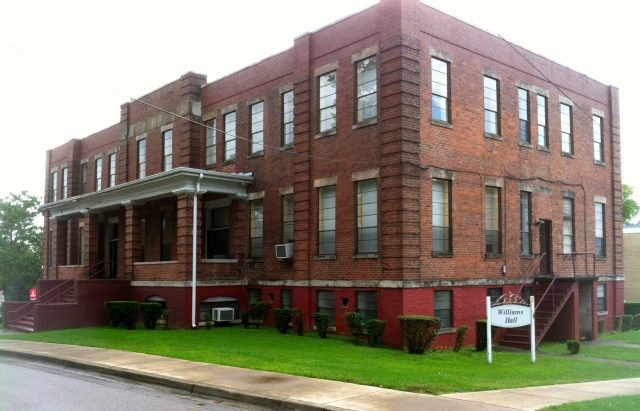By Anthony Cook
Alabama NewsCenter
Miles College was recently awarded a $499,869 grant from the Historic Preservation Fund administered by the National Park Service of the U.S. Department of Interior.
The grant will fund the second phase of preservation and restoration of Williams Hall, which was erected in 1907, is the oldest building on campus and is listed on the National Register of Historic Places.
“We want to thank the National Park Service and Congresswoman Terri Sewell for their continued support,” said Miles College President Bobbie Knight. “This grant permits us to move forward with the next phase of the restoration process to preserve this key historic landmark. We are grateful to the Historic Preservation Fund and National Park Service for their vision to save and restore monuments significant to African American cultural history in America.”
Miles was one of 20 schools nationwide – and one of two in Alabama (the other is Alabama State University) – to receive a portion of $9.7 million in grants awarded during this round of funding. ASU received $493,200 for the G.W. Trenholm Preservation Project. The grants are designated for the preservation of structures at historically Black colleges and universities.
Congress appropriates funding for the program through the Historic Preservation Fund, which uses revenue from federal oil leases on the Outer Continental Shelf, providing assistance for a broad range of preservation projects without spending tax dollars.
“Each year, as Congress makes critical decisions about which federal programs to fund, ensuring that preservation projects on HBCU campuses get the robust funding they deserve remains one of my top legislative priorities,” said Sewell, who was instrumental in helping Miles College secure the grant. “I’m thrilled to see that Alabama HBCUs are once again beneficiaries of this program.”
The site of epic events during the civil rights era, Williams Hall has been in disrepair for several years. The preservation and rehabilitation effort will document and preserve the site of many stories related to the African American struggle to gain equal rights in the 20th century.
For example, two civil rights activists – the Rev. Frank Dukes, a former Miles student, and Jonathan McPherson, a former Miles professor – formed the Anti-Injustice Committee, a group of Miles College students that took part in the 1962 boycott against segregated downtown stores.
The group’s planning meetings were held inside and in front of Williams Hall, which is the inspiration for it becoming headquarters for the Miles College Center for Economic and Social Justice when renovation is complete.
The school intends to restore Williams Hall to its appearance in the 1960s, while extending the usable lifespan of the building by providing modern and purposefully designed spaces for academic and museum offerings. Once Williams Hall has been restored, the college plans to use the building as a teaching museum to honor the founders, students, alumni and the college’s role in the modern civil rights movement.




